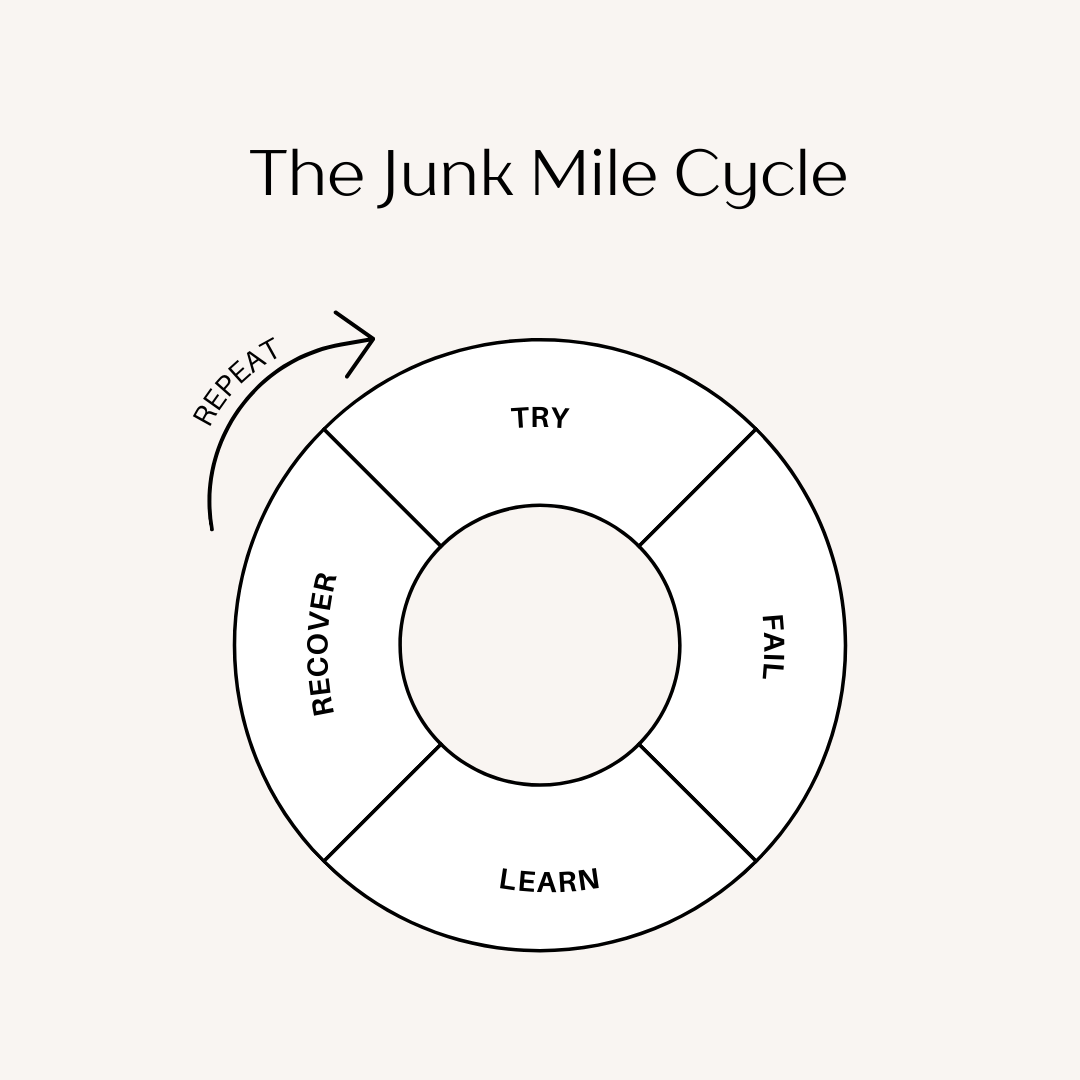Behind every minute we spend on stage are hours spent rehearsing. One role can take up to 40 or 50 hours of practice to build into our brains and bodies before we even step into the rehearsal room with our colleagues. These are our junk miles.
Junk Miles
In marathon training, you have to run many miles just to train for one mile of racing. These miles are full of trial and error. They are a long and relentless trail of failure that you have to run through to even get to the start of a race. Many of these are the junk miles. Each one is monotonous, painful, and frustrating. They are miles run without any specific purpose or goal. Runners argue if they even have a positive effect on your performance or fitness.
But these hours aren’t actually junk, they just feel like it. It’s the same with practice and preparation. You have to put in a lot of (what feel like) useless stupid hours. Each role, phrase, cadenza, requires that we spend hours alone with ourselves and our voice failing over and over again. We all seem to need to find something out the hard way if we are really to learn it well.
Junk Miles are Non-negotiable
Junk miles are a non-negotiable to get to mastery. Many musicians are familiar with the Gladwell 10,000 hour concept. Junk miles are these hours. They are the apprenticeship hours. Behind every role are years of technical and mental work to build the voice plus the many hours it takes to understand the text, diction, musical phrasing, and emotional substance of the character you are preparing to physically portray.
Malcom Gladwell on the 10,000 Hour Rule
Resilience is Efficiency
Resilience is the most time consuming factor of your junk miles. It’s the recovery and reflection phase. When training for a marathon, the better you are at recovery, the more efficient the training will be. In fact, it is in over-training where the problems (illness, injury, burnout) start to present themselves. It’s the same with role preparation.
Recovery in a pressure-filled environment
If you work in the German Theater system, you aren’t going to have a lot of time to get in these junk miles. In this environment, singers are consistently overworked. You have to learn how to fail fast, efficiently, and usually in front of people. It’s creatively hard and painful. The biggest struggle is nailing the recovery phase so you can show up on your performance evenings and maintain your quality.
‘There is no failure. Only feedback.’ — Robert Allen
If you work in a high volume, fast-paced creative environment, like a fest-ensemble, you need to re-frame your relationship to failure as quickly as possible. If you build a beneficial relationship with your failure, then you can move on quickly to the next difficult junk hour of work ahead of you.
3 Ways to Recover
Take the time away from the preparation to un-hear, un-learn, and un-feel the work.
- Spend time alone or with family and friends, depending on your personality type- to gain distance and perspective.
- Move your body
- Sleep
Think of it as a Cycle

The Cycle of Failure and Recovery that builds Resilience
Go leave a trail of junk miles behind you on your way to the stage.
Comment below, write or tag me on Instagram @marthaeasonsoprano — tell me what you think!
As a fest-singer in Germany for over 6 seasons, I’ve given hundreds of performances of nearly 40 different roles. I love using my experience to help my clients start and build their careers in Europe. If you want to learn more or are interested in building a career in Europe, you can register for a coaching here.

